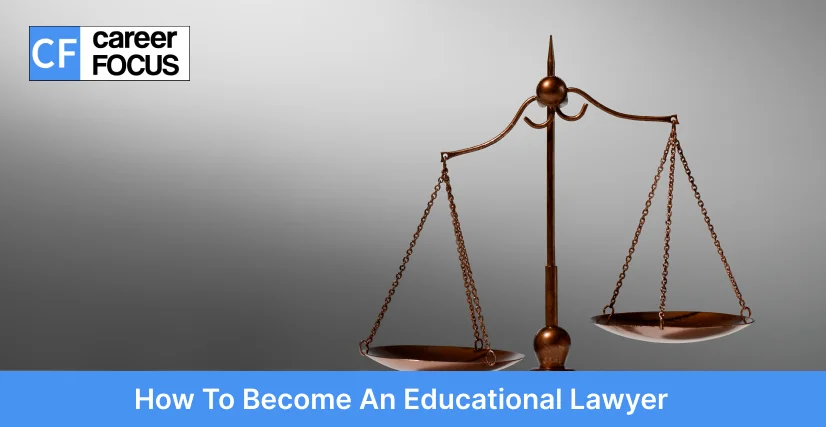Table of Contents
Becoming an educational lawyer is an exciting career path that allows you to advocate for students, educators, and institutions, helping to navigate the complex legal landscape of the education system. If you’re passionate about education and the law, this profession offers a meaningful way to combine these interests.
Step 1. Understanding the Role of an Educational Lawyer
Educational lawyers specialize in issues related to schools, colleges, and universities. Their work can involve representing clients in cases of discrimination, special education needs, student rights, or employment disputes within educational institutions. They may also work on policy development, advising educational bodies on legal compliance, and helping shape the future of education through legislation.
What Does an Educational Lawyer Do?
An educational lawyer specializes in legal issues related to schools, colleges, and universities. Some of their key responsibilities include:
- Advocating for Student Rights: Handling cases involving discrimination, special education needs, and disciplinary actions.
- Ensuring Legal Compliance: Advising educational institutions on adherence to laws and regulations.
- Managing Employment Issues: Resolving disputes related to contracts, termination, and workplace discrimination for teachers and staff.
- Litigating and Mediating: Representing clients in legal disputes and using mediation to resolve conflicts.
- Providing Legal Advice: Offering guidance on education law matters and helping develop policies.
Educational lawyers can work in various settings, including law firms, educational institutions, government agencies, and non-profits. Their work ensures that the rights of students and educators are protected while helping institutions navigate complex legal landscapes.
Step 2. Educational Pathway
To become an educational lawyer, you’ll need to follow a structured educational pathway:
a. Complete a Bachelor’s Degree (LLB or Equivalent)
In many countries, including India, pursuing an LLB (Bachelor of Laws) is a critical step. You can enrol in an integrated 5-year LLB program directly after completing higher secondary education (12th grade) or pursue a 3-year LLB after completing a bachelor’s degree in another field, such as education, political science, or any other relevant discipline.
b. Consider Additional Specialization
While an LLB provides a solid legal foundation, pursuing further specialization in education law during or after your LLB can be beneficial. Some may opt for a Master of Laws (LLM) with a focus on education law or related fields, which can enhance their expertise and career prospects.
| Qualification Level | Next Step | Pathway |
|---|---|---|
| 12th Pass | Integrated 5-Year LLB | Complete 5-Year Integrated LLB Program (e.g., BA LLB, BBA LLB) |
| UG Pass (Any Discipline) | 3-Year LLB | Enroll in a 3-Year LLB Program |
| PG Pass (Any Discipline) | 3-Year LLB | Enroll in a 3-Year LLB Program |
Step 3. Pass the Bar Exam
After completing your LLB or J.D., you must pass the bar exam in the jurisdiction where you intend to practice. This exam assesses your knowledge of the law and your readiness to practice.
Step 4. Gain Experience:
Gaining experience through internships, clerkships, or entry-level positions is invaluable. Seek opportunities that allow you to work on education-related cases or with firms that specialize in educational law.
Step 5. Developing Expertise
Beyond formal education, becoming an expert in educational law requires a deep understanding of the specific issues that affect the education sector:
- Specialize in Education Law: Choose a specialization that aligns with your interests, such as special education law, student rights, or higher education law. This will help you become an expert in that particular area, making you more valuable to clients.
- Stay Updated on Legislation: Educational law is constantly evolving. To be effective, you must stay informed about changes in laws, regulations, and court rulings that impact education.
- Build a Professional Network: Join professional organizations, attend conferences, and engage with other legal professionals who specialize in education law. Networking can open doors to job opportunities and provide support as you build your career.
Career Opportunities
Educational lawyers can work in various settings:
- Private Practice: Many educational lawyers work in private law firms, representing clients in legal disputes or providing consultation services.
- Government and Public Sector: Some work for government agencies, advising on policy or representing the government in legal matters related to education.
- Nonprofit Organizations: You can also work with nonprofits that focus on educational reform, civil rights, or advocacy for students and educators.
- In-House Counsel: Large educational institutions may hire in-house counsel to handle their legal matters, providing ongoing legal support and ensuring compliance with laws and regulations.
Skills and Attributes for Success
To thrive as an educational lawyer, certain skills and attributes are crucial:
- Strong Analytical Skills: You’ll need to analyze complex legal issues and interpret laws and regulations accurately.
- Excellent Communication Skill: Both written and oral communication skills are vital for presenting cases, negotiating, and advising clients.
- Empathy and Compassion: Understanding the impact of legal issues on students, families, and educators requires a compassionate approach, especially when dealing with sensitive matters.
- Attention to Detail: Legal documents and case details require meticulous attention to ensure accuracy and compliance.
Conclusion
Becoming an educational lawyer is a rewarding career choice that allows you to make a significant impact on the education system. By following the right educational path, gaining relevant experience, and continuously developing your expertise, you can build a successful career in this specialized field.
Whether you choose to work in private practice, the public sector, or for a nonprofit, your work will contribute to creating a fairer, more equitable education system for all.

